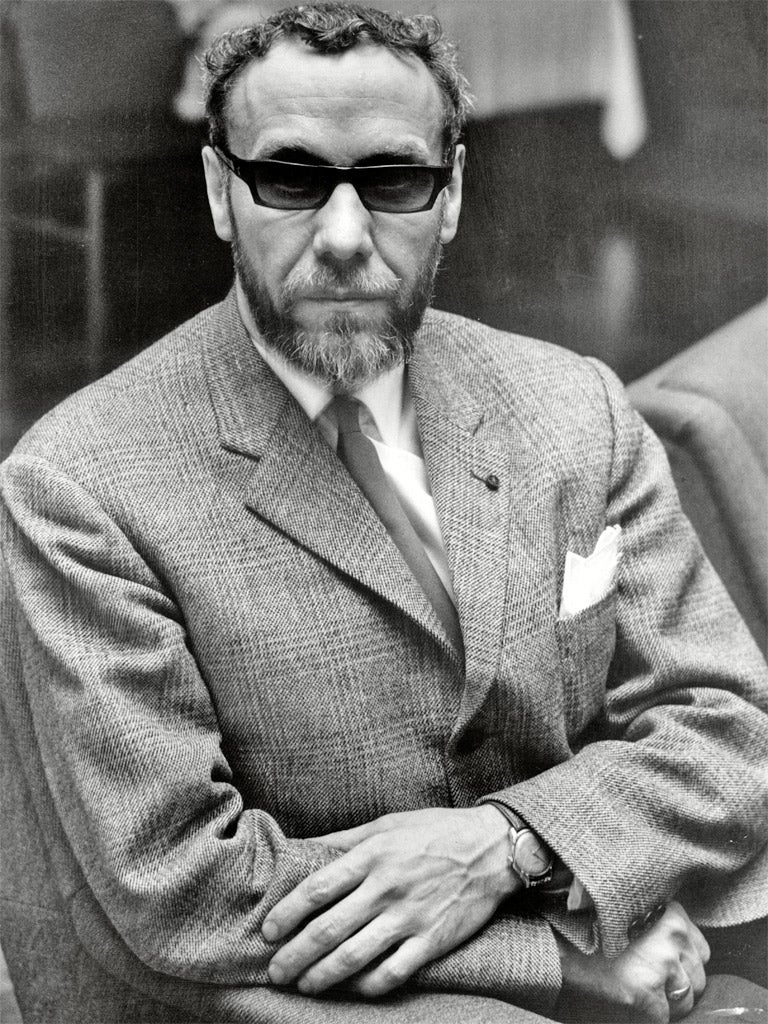Sven Hassel: Soldier who won the Iron Cross and wrote best-sellers

Your support helps us to tell the story
From reproductive rights to climate change to Big Tech, The Independent is on the ground when the story is developing. Whether it's investigating the financials of Elon Musk's pro-Trump PAC or producing our latest documentary, 'The A Word', which shines a light on the American women fighting for reproductive rights, we know how important it is to parse out the facts from the messaging.
At such a critical moment in US history, we need reporters on the ground. Your donation allows us to keep sending journalists to speak to both sides of the story.
The Independent is trusted by Americans across the entire political spectrum. And unlike many other quality news outlets, we choose not to lock Americans out of our reporting and analysis with paywalls. We believe quality journalism should be available to everyone, paid for by those who can afford it.
Your support makes all the difference.Sven Hassel was a remarkable but controversial author who wrote successful novels set on the Eastern front in the Second World War. Starting in 1953 he published 14 novels, written in the first person, which were translated into 25 languages and published in 50 countries.
Born Sven Pedersen in 1917 into a working-class family in Zealand, he later adopted his mother's maiden, German, name, Hassel. Roughly 6,000 Danes, about a quarter of them from the German minority, volunteered to fight against the Soviet Union after the German invasion in June 1941, but Hassel was different in that he joined the German army before the war. He had by then worked on Danish ships as a cabin boy.
Unemployed after completing his military service in Denmark in 1936, he left to enlist in the expanding Wehrmacht in the following year, becoming a German national and a tank driver. His unit, part of the 2nd Panzer Division, took part in the invasion of Poland on 1 September 1939. The objective of the division was to capture Krakow, where it came against the improvised but well co-ordinated Polish defence and suffered heavy losses.
Hassel served on all fronts except North Africa during the Second World War. At one point he went Awol. Wounded seven times, he was eventually promoted to lieutenant and was awarded the Iron Cross, 1st and 2nd class, plus a number of other medals. He ended the war in Berlin as a prisoner of the Soviets but was moved from one ally to another.
He was released in 1949 and believing civilian life offered him little he, like thousands of other ex-Wehrmacht soldiers, found the appeals to join the French Foreign Legion seductive. But instead of ending up in Vietnam he was lucky enough to meet Dorthe Jensen. They married in 1951. He went to work in a car factory, but Dorthe encouraged him to write.
He had started work on his first and best-known book, Legion of the Damned, while still a prisoner. It was published in Danish in 1953 and in English four years later. Said to have been based on Hassel's own military service, it gave his readers brutal descriptions of life in a German wartime penal regiment. These so-called Strafdivisionen [punishment divisions] were set up in October 1942 as mounting losses forced the German High Command to trawl the concentration camps and prisons for more cannon fodder. Often these soldiers were anti-Nazis who were forced to carry out construction work at the front. Many of them defected.
In 1957, Hassel was stricken by Caucasian fever, a sickness contracted during the war, causing total paralysis. He was not cured till 1959. During this time, he received a letter from his English publisher urging him to continue writing. Two more books were published – Wheels Of Terror (1958) and Comrades Of War (1960) and he became popular round the world. In 1964 he moved to Barcelona, where he continued to write. Dorthe died in 2003. They had a son and a granddaughter. His last book, The Commissar, appeared in 1985.
His books graphically describe the brutal realities of war faced by the ordinary soldier, and some readers believed that they contain an anti-war message. The blurb to Reign of Hell read: "Burning, looting, raping, murdering, Hitler's Penal Regiment advanced on the centre of Warsaw leaving in their wake a bloody trail of death and destruction. They killed indiscriminately: Pole or German, man, woman or child…"
The 1950s was a good time to publish this type of work: West Germany was debating rearmament and the new armed force, die Bundeswehr, was established in 1955. Many Germans were against this and welcomed anti-war literature. Others would reply, "War is brutal but we must defend what's left of Germany." Young volunteers of the Bundeswehr were certainly reading Hassel in 1957.
In truth, these novels could appeal to both sides; they gained their greatest popularity in Britain. In 1987 his book Wheels of Terror was made into a film, The Misfit Brigade, with Oliver Reed. Some historians pointed out inaccuracies in Hassel's novels but Hassel was more concerned about his depiction of war.
He claimed he had been greatly influence by Erich-Maria Remarque's anti-war work All Quiet On The Western Front, and it was his hope that his books would show the horrors of war so that younger generations would dedicate their lives to saving lives rather than destroying them.
David Childs
Sven Hassel, soldier and author: Frederiksborg, Zealand, Denmark 19 April 1917; married Dorthe Jensen; died 21 September 2012.
Join our commenting forum
Join thought-provoking conversations, follow other Independent readers and see their replies
Comments